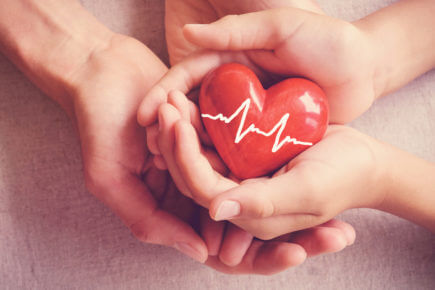 Your heart controls the main transportation system in your body – your bloodstream – which is necessary to carry nutrients and oxygen to all of your cells. For some people, the heart can begin to not work properly, and this is called congestive heart failure.
Your heart controls the main transportation system in your body – your bloodstream – which is necessary to carry nutrients and oxygen to all of your cells. For some people, the heart can begin to not work properly, and this is called congestive heart failure.
Many people assume that “heart failure” is the same thing as a heart attack or that it means that the heart has stopped, but this isn’t the case. Congestive heart failure can put you at risk of damage to the heart, liver, and/or kidneys.
Common Signs of Congestive Heart Failure
It’s important to know the signs of heart failure in order to know that you need prompt medical treatment, and these signs include the following:
Rapid or Inconsistent Heartbeat
Heart failure puts a strain on your heart that may cause tachycardia or arrhythmia, specifically atrial fibrillation (A-fib). When you have A-fib, you might have symptoms such as dizziness, weakness, or chest pains. It can even put you at a greater risk of having a stroke.
Shortness of Breath
When your heart doesn’t pump blood properly, you don’t receive the oxygenated blood that you require, which will lead to you being short of breath. The severity of your condition directly relates to how out of breath you are.
The shortness of breath may occur when you overexert yourself or even when you lie down flat. Whenever you lie down if you have congestive heart failure, your heart cannot handle the physical pressure on your vascular system very well. As a result, some fluid enters your lungs and causes you to feel short of breath.
Fatigue and Weakness
Because blood doesn’t circulate through your body correctly with congestive heart failure, your brain and tissues don’t receive enough oxygen, and you might feel tired and weak. Generally, the degree of tiredness tends to correlate to the severity of your heart failure.
Increase in Nighttime Urination
A fully functioning heart pumps blood through your body without a problem. As blood passes through your kidneys, they filter any excess water and send it to your bladder, which causes you to urinate.
Congestive heart failure can interfere with this process. When you lie down to go to sleep, your kidney function improves – which causes you to excrete extra excess fluid that accumulated during the day.
